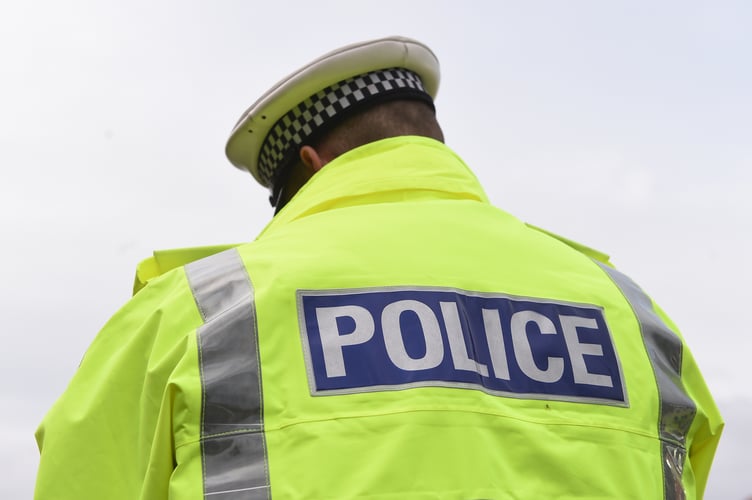Black people in Dyfed and Powys were four times as likely to be stopped and searched by police than white people last year, new figures show.
Human rights organisation Liberty said stop and search is traumatic and distressing and called on the Government to invest in addressing the issues it creates.
Home Office figures show Dyfed-Powys Police carried out 47 stop and searches on black people in the year to March – equivalent to 36.5 per 1,000 black people in the area.
This is compared to a rate of 9.2 per 1,000 white people in Dyfed and Powys, meaning black people were four times more likely to be subject to a stop-and-search.
Across forces in England and Wales, people who self-identified or who police identified as black were five times more likely to be stopped and searched – down from 5.5 times the year before and 6.2 in 2021-22.
Black people were also more likely to be arrested following a stop-and-search. Across England and Wales, 15.9% of stop and searches conducted on black people resulted in arrest, compared to 13.9% of those involving white people.
Ruth Ehrlich, head of policy and campaigns at Liberty, said: “Stop and search is traumatic and distressing – and something that black people are far more likely to experience. Just because this disproportionality is not new does not mean we should fail to be appalled by it.
“For years, previous Governments have failed communities by stripping away the support that they need, and used racist and violent policing tools to try and paper over the cracks.
“We need the new Government to take urgent action to reduce the use of stop and search, and for greater investment to tackle these serious issues.”
Ms Ehrlich raised concerns about the number of stop and searches conducted on children, with 103,000 (19.3%) on under-18 year olds across England and Wales last year.
In Dyfed and Powys, children accounted for 22.9% of all stop and searches.
Ms Ehrlich said: “Evidence shows that stop and search does not work, yet its continued use repeatedly forces people into police encounters.
“Children require support from the state, not increased criminalisation.”
A Home Office spokesperson said: “Stop and search is an important tool in tackling crime but it’s crucial for public confidence in the police that it is used in an appropriate and fair way.
“Certain groups have been disproportionately targeted for stop and search and while this has been significantly reduced, there is more work to do and the Home Secretary will play a more active role in raising standards across policing.
“Ultimately, prevention remains the most effective tool for tackling crime which is why our ambitious Young Futures Programme will support those at risk of getting involved in crime and work with them towards a brighter future.”




